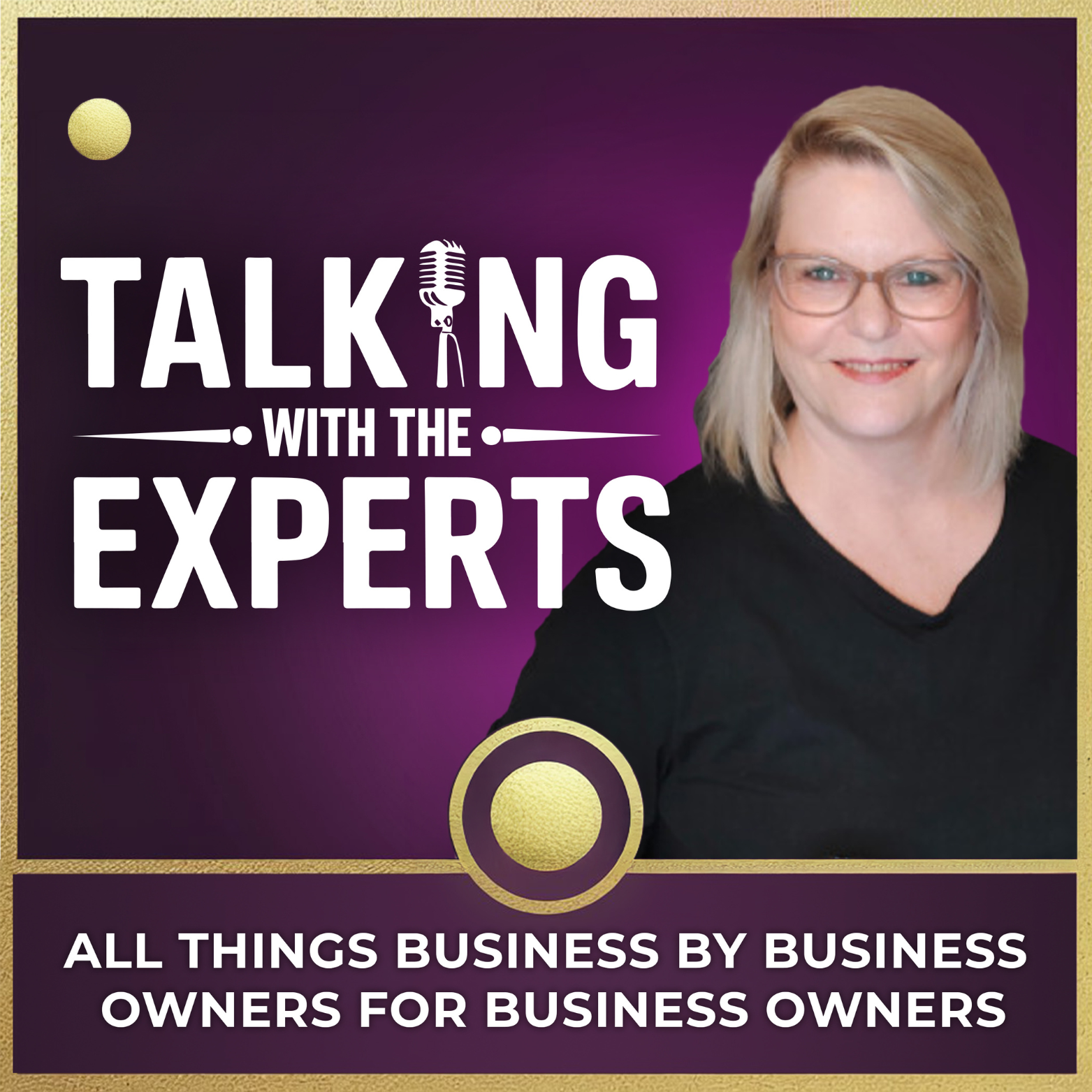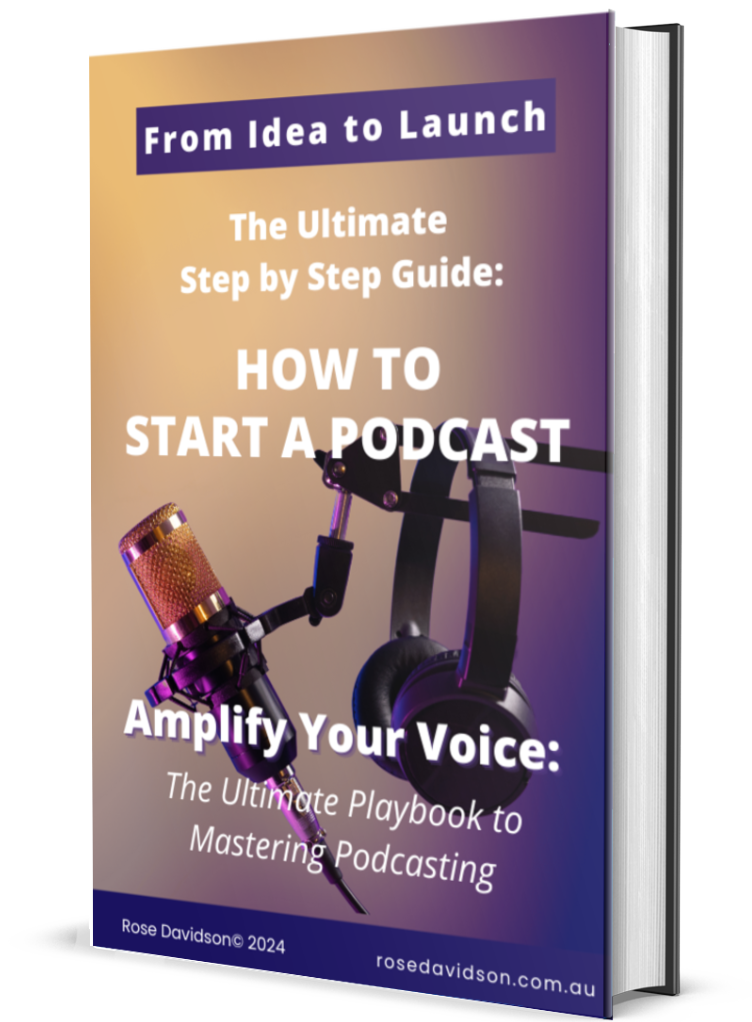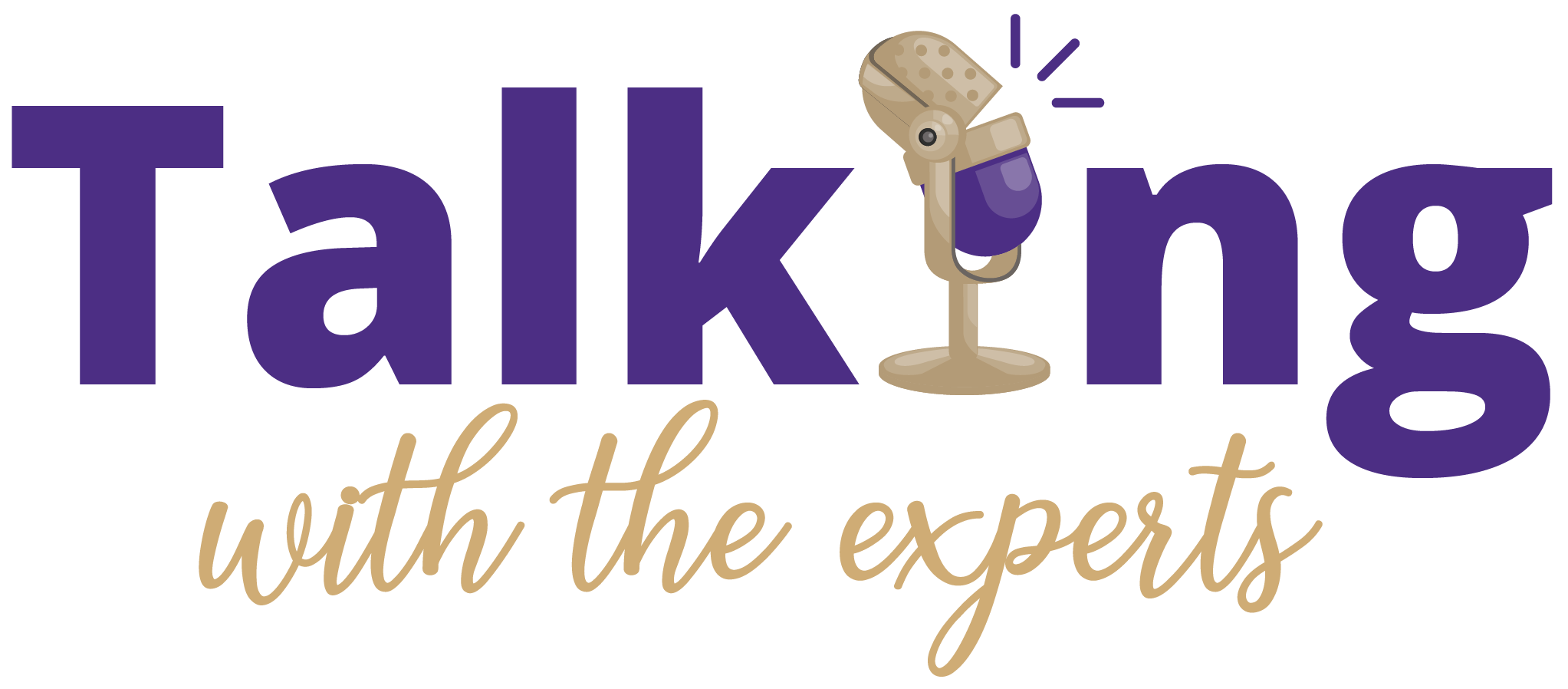Guest
Mandy Keene

The #1 Leadership Mistake That’s Holding Your Team Back
Mandy Keene reveals the #1 mistake leaders make when managing personality types and how embracing differences can help scale your business with confidence.
Mandy's Bio
Mandy Keene is a world-renowned master coach, speaker, and the author of Understanding Personality. With over 25 years of experience and 40,000+ hours of coaching, Mandy has worked with high-level entrepreneurs, visionary leaders, and global teams to help them lead more effectively. She co-created a powerful personality integration platform alongside her best friend, Russell Brunson, combining the world’s top personality assessments into one tool for transformative team alignment. A former mentee of Tony Robbins and deeply influenced by spiritual teacher Richard Rudd, Mandy brings together deep psychology, practical leadership, and soulful wisdom. Her work equips leaders to better understand themselves and their teams—creating communication that connects, cultures that thrive, and businesses that scale. Mandy’s teachings are not just powerful—they’re transformational.
Where to find other episodes
About this episode
Are you unknowingly hiring the wrong people for your business—simply because they feel “comfortable”?
In this eye-opening episode of Talking with the Experts, Rose Davidson chats with master coach and personality expert Mandy Keene about a hidden trap many leaders fall into: managing and hiring only what feels familiar.
Mandy’s journey began under the mentorship of Tony Robbins and has taken her across the world, coaching leaders and co-creating a personality integration platform with Russell Brunson. Her work centres around helping entrepreneurs unlock their superpowers—and become deeply aware of their leadership blind spots.
You’ll hear why leading a successful team isn’t about finding people like you, but rather, building a team of diverse strengths and learning to speak their language. Mandy breaks down how understanding personality types can shift everything: communication, team trust, productivity, and growth.
This episode offers profound insight for anyone ready to scale their business with more intention and less stress. Whether you’re just building your first team or leading a fast-growing company, Mandy’s wisdom will inspire you to lead with clarity, authenticity, and emotional intelligence.
🎧 Tune in now and learn how to bring out the best in yourself—and everyone around you.
📌 THREE Key Takeaways:
- You have a leadership superpower—and a shadow. Embrace both to lead more authentically.
- The best teams are built on diversity of personality, not similarity.
- Knowing who you need on your team helps you scale faster, with more clarity and peace.
Outline
Mandy Keene’s Background and Expertise
- Mandy Keene is a globally respected master coach and author of Understanding Personality.
- She has more than 25 years of experience and over 40,000 hours of one-to-one coaching.
- She partnered with Russell Brunson to co-create world-leading software that integrates top personality assessments into one powerful platform.
- She specializes in helping high-level entrepreneurs, visionary leaders and world-class teams elevate their emotional intelligence, communication and leadership.
- Her work blends deep psychology with spiritual truth and grounded practicality.
Motivation Behind Writing Understanding Personality
- The book was written due to witnessing unnecessary suffering among clients in business hiring and team management.
- Many entrepreneurs experience avoidable pain when it comes to people management and hiring decisions.
- The education system fails to teach people who they are and what roles suit them best.
- Understanding personality types can prevent unnecessary suffering by helping people know themselves and identify who they need for specific positions.
The Rock Band Metaphor for Team Building
- Building a company team is like creating a rock band where each member has a specific role.
- If you are the lead singer, you need to identify and hire a keyboardist, drummer, and other specific roles.
- Every company needs certain people and certain team members with complementary skills.
- Knowing personality types helps entrepreneurs understand why certain hires worked or didn’t work.
- This approach helps entrepreneurs make better hiring decisions based on role requirements rather than personal preferences.
Personal Discovery Through Personality Assessments
- Mandy discovered through assessments that she should never do administrative work, tech support, or similar tasks.
- Before understanding her personality type, she thought she might be unintelligent when struggling with admin work.
- Personality assessments revealed that struggling with certain tasks doesn’t indicate lack of intelligence but rather misalignment with natural strengths.
- Everyone has genius within them, and assessments help identify where that genius should be applied.
- Using assessments as tools can make the entrepreneurial journey more enjoyable and effective.
Reliability and Accuracy of Personality Assessments
- Assessment results can vary depending on mood, time of day, and current life circumstances.
- Not all personality assessments are created equal, which is why combining multiple validated assessments provides better accuracy.
- Understanding Personality platform combines the top six assessments in one place for comprehensive results.
- People who score close to the middle line between personality types may see fluctuating results.
- Those with extreme scores in certain areas will likely always maintain those core traits regardless of circumstances.
Importance of Professional Guidance with Assessments
- Taking personality assessments alone without professional guidance is insufficient for meaningful change.
- Working with a coach, therapist, or expert helps properly integrate assessment results into practical applications.
- Simply taking assessments without integration is like taking magazine quizzes that are quickly forgotten.
- The real transformation happens when working with experts who can help interpret and apply the results effectively.
The Hiring Mistake of Choosing Similar Personalities
- People naturally tend to hire others who are similar to themselves rather than those best suited for the role.
- Tony Robbins’ company analysis revealed they had hired many high dominant, high influencing people but lacked detail-oriented systems people.
- This created unnecessary chaos because there was no one handling systems and detailed work.
- Russell Brunson initially wanted to hire funnel builders who were similar to his personality type.
- The video application requirement was actually deterring the right personality types who would be uncomfortable on camera but perfect for detailed technical work.
Successful Hiring Based on Role Requirements
- When Russell removed the video requirement and focused on personality fit for the role rather than personal preference, he found the right candidate.
- Nick Sanders was hired based on personality alignment with job requirements and still works successfully in that role today.
- Thinking beyond personal personality preferences and focusing on role suitability leads to better hiring decisions.
- The best candidates for certain roles may be people the hiring manager wouldn’t naturally gravitate toward personally.
Value of Different Perspectives in Organizations
- Different personality types bring fresh perspectives that can improve organizational processes and efficiency.
- Long-established companies may resist change even when presented with more efficient methods.
- Employees with different viewpoints can identify process improvements that leadership cannot see due to familiarity blindness.
- Organizations need input from diverse personality types to avoid becoming stuck in inefficient traditional methods.
- Resistance to different perspectives often stems from ego rather than practical considerations.
The Number One Leadership Mistake with Personality Types
- The biggest mistake leaders make is not slowing down enough to really get to know their team members as individuals.
- Modern culture moves too quickly, creating a rushed environment focused on tasks rather than people.
- Successful leaders who maintain balance in finances, relationships, and health tend to move slower and be more intentional.
- These leaders pause to look team members in the eyes, check in personally, and make people matter more than just tasks and results.
- The mistake is forgetting that everyone involved are humans who need care and attention beyond just work output.
Intentional Leadership and Human Connection
- Leaders at the top of their game are more intentional about how they treat people and understand themselves well.
- Effective leadership involves meeting people at their level rather than forcing them to adapt to the leader’s style.
- Self-awareness helps leaders recognize that they don’t know themselves 100% as personalities can shift due to life events.
- Taking different personality types into account and involving people appropriately for their type creates better outcomes.
Personality Awareness Reduces Shame and Improves Self-Acceptance
- Understanding personality types helps relieve shame by providing context for natural tendencies and struggles.
- Shame requires secrecy, silence, and judgment to survive, while personality awareness creates safe spaces for discussion.
- Knowing someone’s personality results reveals common areas of shame and fear without needing their full story.
- Self-awareness about personality fears and shame reduces their controlling power over behavior and decisions.
Embracing Natural Personality Strengths and Roles
- Mandy’s personality type naturally gravitates toward people-pleasing and coaching, which explains both her career choice and her challenges with boundaries.
- Understanding why certain tasks are difficult (like saying no) while others are natural strengths (like empathy) creates self-compassion.
- Comparing oneself to clients with different personality types can create imposter syndrome until understanding that different roles require different strengths.
- Recognizing that being different from successful clients is actually what makes someone valuable in their coaching role.
- Each personality type has unique strengths that are easy for them but difficult for others, and vice versa.
Accepting Individual Differences for Better Relationships
- People are shaped by life experiences, upbringing, family, and friends, creating unique personality combinations.
- Some traits are present from birth while others develop over time through experiences.
- Significant effort is required to change core personality traits, making acceptance more practical than forced change.
- Universal acceptance of different personality types would create a kinder, more understanding world.
- Using animal metaphors helps remove ego from personality discussions by illustrating that different types are simply different, not better or worse.
Next Steps
- Leaders should focus on slowing down and investing time in understanding their team members’ individual personality types.
- Organizations need to implement personality assessment processes that prioritize role fit over personal similarity when hiring.
- Companies should work with qualified coaches or experts to properly integrate personality assessment results into practical management strategies.
- Teams should embrace and leverage different personality types rather than trying to create uniformity across all positions.
Keypoints
- Mandy Keene explains that her book “Understanding Personality” was motivated by witnessing unnecessary suffering among clients, particularly in hiring processes where mismatches occur because people don’t understand themselves or who they need for specific positions.
- Using the metaphor of creating a rock band, Mandy emphasizes that companies need certain personality types for different roles, similar to how bands need specific musicians, and criticizes the education system for not teaching people to understand their natural strengths and weaknesses.
- Mandy discusses how personality assessments can help identify individual strengths, noting that not all assessments are created equal, which is why her platform combines six top assessments in one place, allowing people to see comprehensive results.
- For maximum benefit from personality assessments, Mandy recommends working with a coach, therapist, or expert to help integrate the results rather than just taking assessments without guidance, which she compares to “taking quizzes in a magazine.”
- Rose highlights that people tend to hire others similar to themselves, which Mandy confirms with a story about Russell Brunson wanting to hire funnel builders like himself, when the role actually required someone with a completely different personality type.
- Mandy shares how she helped Russell adjust his hiring process by removing video applications that would deter the right personality type for the role, resulting in a successful hire who still works for him today.
- Different perspectives from varied personality types can improve organizational efficiency, as Rose illustrates with her experience suggesting process improvements at a company resistant to change because they couldn’t “see the wood for the trees.”
- The number one mistake leaders make when managing different personality types is not slowing down enough to really get to know each other, with Mandy noting that successful people move slower, pause to look team members in the eyes, and make people matter more than tasks and results.
- Being intentional with people and taking into account different personality types is crucial, with Rose emphasizing the importance of meeting people at their level rather than forcing them to adapt to yours.
- Mandy explains how understanding personality types relieves shame by providing context for personal struggles, using her own experience as a people-pleaser (Enneagram nine, high I influencer) to illustrate how self-awareness helped her develop compassion for herself.
- Understanding different personality types helps people recognize why certain tasks are easy for some but difficult for others, eliminating impostor syndrome by clarifying individual strengths and appropriate roles.
- Mandy uses animal metaphors (lions, golden retrievers, giraffes) when coaching to remove ego from personality discussions, emphasizing that different personalities aren’t better or worse than each other—just different.

If you liked this podcast episode, don’t forget to subscribe via your favorite podcast platform and leave a review so we can continue to bring you more episodes!
Be a guest
Ready to start your podcasting journey?
Grab your copy of “The Ultimate Step by Step Guide on How to Start a Podcast“!
🎙️ This e-book is packed with everything you need to know, from planning and recording to launching and growing your podcast. Whether you’re a beginner or looking to enhance your skills, this guide has you covered.
Don’t wait—start turning your podcast dreams into reality today!

Sign up for our newsletter
#LeadershipMistakes #MandyKeene #PersonalityTypes #EmotionalIntelligence #EntrepreneurLeadership #TeamCommunication #HeartLedLeadership #TalkingWithTheExperts
